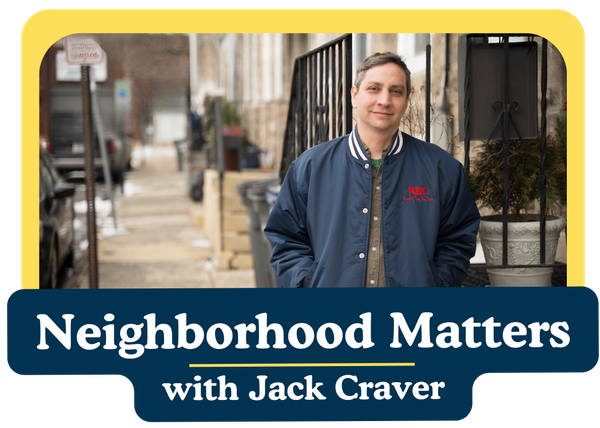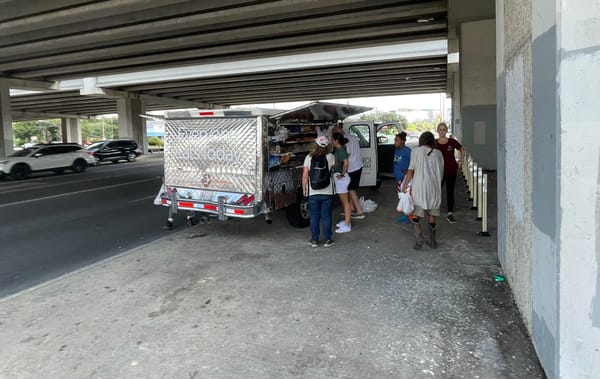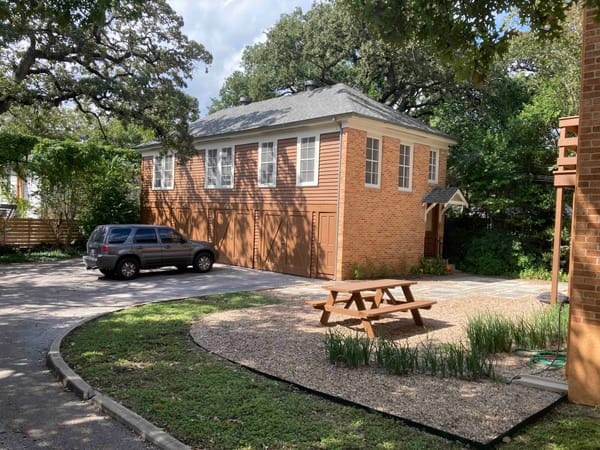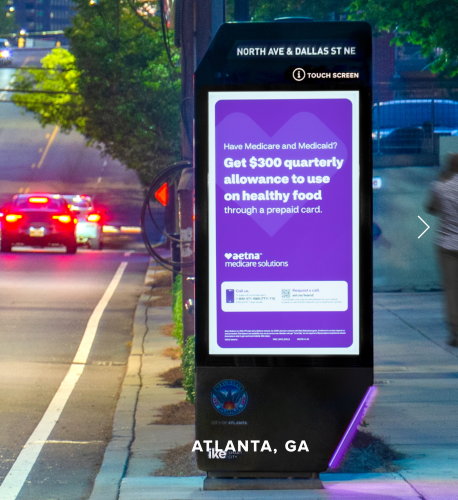Vibes at the polls
Mixed vibes in South Austin.
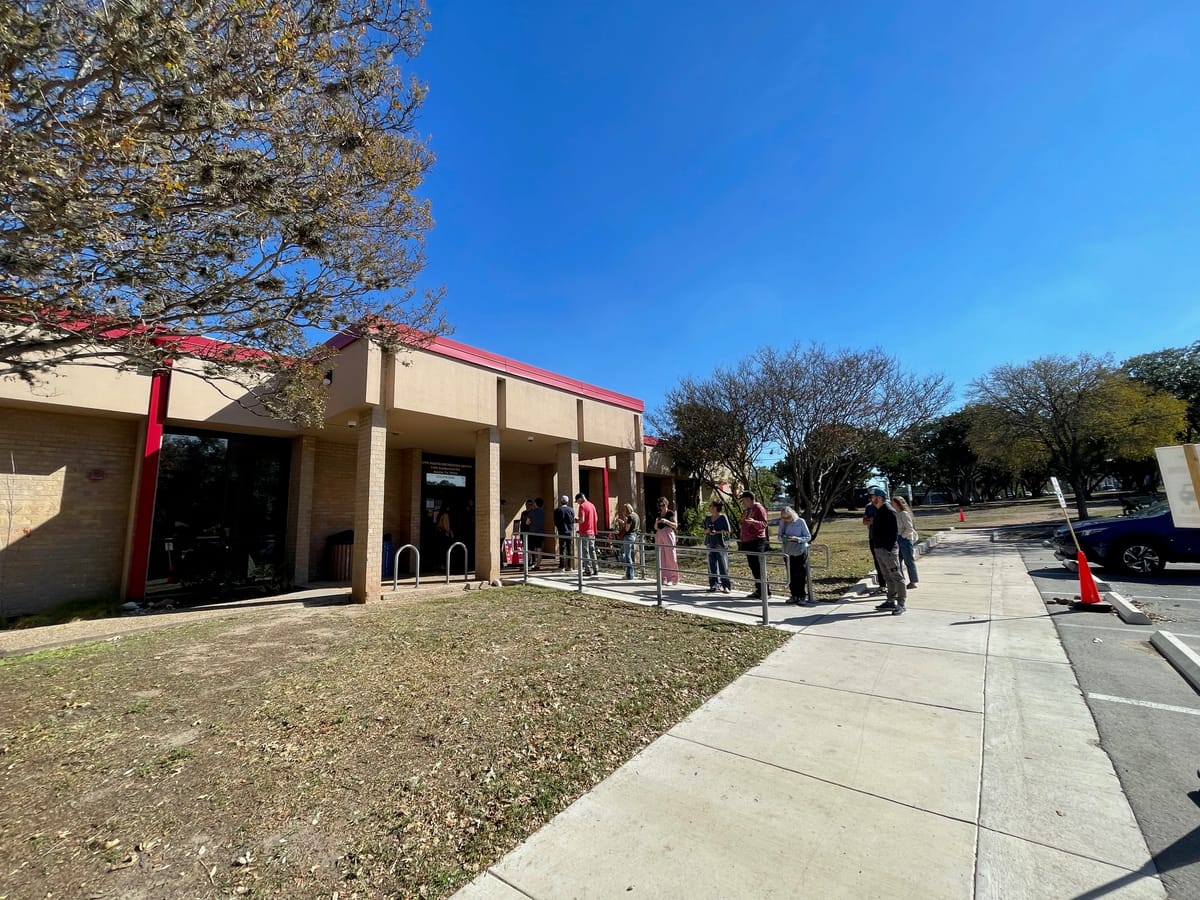
From what I'm hearing, turnout appears similar to the November 2021 election. There are likely to be roughly 150,000 votes cast in the city.
This morning I went to the South Austin Rec Center – where I used to cast my ballots – to talk to voters about Prop Q. The 30 people I spoke to were split almost evenly. This reinforces my view that Prop Q is in serious trouble because I expect opposition to be overwhelming in West Austin, where turnout will be highest.
The reluctant supporters
One man I talked to said it was a "tough call," and that his wife would probably vote against, but in the end he decided to vote against his "enemies" –– Abbott and Paxton. He nevertheless called "appalling" some of the City Council spending highlighted by the Statesman: "I don't think a Council member has any business going to Japan," he said.
Another said he would be glad to sacrifice a cup of coffee to invest more in homeless services. He conceded he wasn't happy with everything City Council has done and "abuse of office" is a problem at every level of government, but that the solution to that was to elect good people, not to underfund needed services.
"I'm not happy with City Council," said one woman, citing the "stupid logo" and articles about Council members and the city manager spending on lunches. But she supports investing more in public services.
The happy supporters
There were some others who said they were happy to support the tax increase, didn't believe it was that much and did not have strong opinions about city government. One woman told me she had simply followed the Austin Chronicle recommendations.
I asked one guy why he was in favor and he said, "I don't own any property. And I won't own any property anytime soon. So we might as well make the rich property owners pay." He generally believed society needed more funding for social services, "even if people mismanage it."
They're closing schools and raising taxes!?
The conversations underscored something I have referenced before: many people don't distinguish between different types of local government. Their view on city government has a lot to do with what the school district and county are doing.
In at least one case, that helped Prop Q: a man told me he voted for it because he believes public schools need more money. In a twist I didn't expect, he said he worried that a lack of school funding would lead to his neighborhood school closing and his home value declining.
But more often people said the opposite. A woman with two kids at Austin High said that the school district bonds she had voted to approve didn't seem to translate to improved facilities. When she goes to see her kids play sporting events in other districts, the facilities are "100 times better," she said. The woman, who said she leans left and supports all of the services that Prop Q will fund, got emotional discussing the tax burden: "I can hardly afford to live in my house anymore." (She also thought Cap and Stitch is a waste)
If property values are rising, why do they need to raise taxes?
Another common perception among voters is that city government should have plenty of cash simply due to the growth of the city and the growth in property values (although they have fallen in recent years).
"The tax base is growing, values are growing," said one man who said he relocated from New York City with the expectation of paying lower taxes.
As I've explained, that's not actually how property taxes work. But that's how a lot of people think they work. That is a long-term misconception that local governments need to do a better job of correcting.
Where's the infrastructure?
A number of people complained about city infrastructure, saying the city wasn't delivering on the bonds they had approved. Where's the train? Why are the streets still so bad? Etc.
"I already pay enough taxes"
Unsurprisingly, this was a common response. When I asked what they make of the argument that city services are threatened, they often responded that the city has enough money, it just needs to do a better job managing it.
Please tell your friends to get their own subscription to the Austin Politics Newsletter!
And if you found this article particularly valuable, you can show your appreciation by buying me a cup of coffee to fuel further investigation and analysis of city politics.


